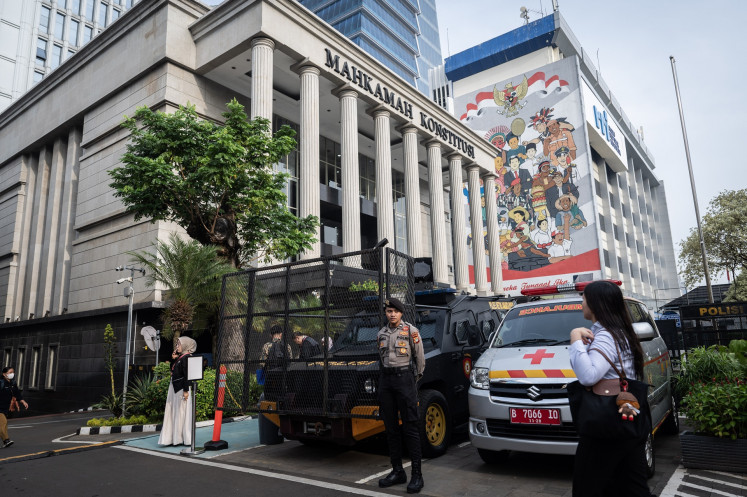Idul Fitri: When did it fall?
The local blogosphere has been abuzz with debates over when the fasting month actually ended as national figures reflect on whether the Muslim-majority country should accept the ambiguity or find a way to address it
Change text size
Gift Premium Articles
to Anyone

T
he local blogosphere has been abuzz with debates over when the fasting month actually ended as national figures reflect on whether the Muslim-majority country should accept the ambiguity or find a way to address it.
For the first time in years, the government on Monday announced that Idul Fitri fell on Wednesday, Aug. 31, not Tuesday as designated on the calendar, triggering confusion among Muslims who had prepared for the biggest Islamic festivity in the country.
The Religious Affairs Ministry made the announcement following an isbat meeting attended by representatives from Muslim organizations and Muslim scholars on Monday evening. The decision stirred controversy when Muhammadiyah, the country’s second-largest Islamic group, begged to differ, saying that the end of Ramadhan fell on Tuesday just like in Saudi Arabia and neighboring Malaysia.
Unlike Nahdlatul Ulama (NU) and several other Islamic organizations, Muhammadiyah uses different criteria for hilal, the sighting of the new moon marking the beginning of the month of Syawal when Muslims celebrate Idul Fitri.
An astronomer from the National Aeronautics and Space Agency, who also works for the Religious Affairs Ministry, criticized Muhammadiyah for using an “outdated method” to determine Lebaran. He writes on his blog, http://tdjamaluddin.wordpress.com, that as long as the organization did not change its method, the Muslim holiday would always be celebrated on different days in Indonesia. Muhammadiyah rejected his suggestion, saying that it believed in its own method.
Masdar F. Mas’udi, Nahdlatul Ulama deputy chairman, said differences in determining Lebaran could occur, but it was not impossible to unify the calendar calculation by combining different methods. “It is a difficult task, but nothing is impossible,” Masdar said.
Nasaruddin Umar, an official from the Religious Affairs Ministry, said the government always allocated two days to celebrate Idul Fitri. “Usually we put the first holiday date on the 30th day of Ramadhan, but this year, we put it on Ramadhan 29 so civil servants are on duty for longer. The two-day holiday on the calendar does not necessarily mean that Syawal 1 falls on the first holiday date.”









